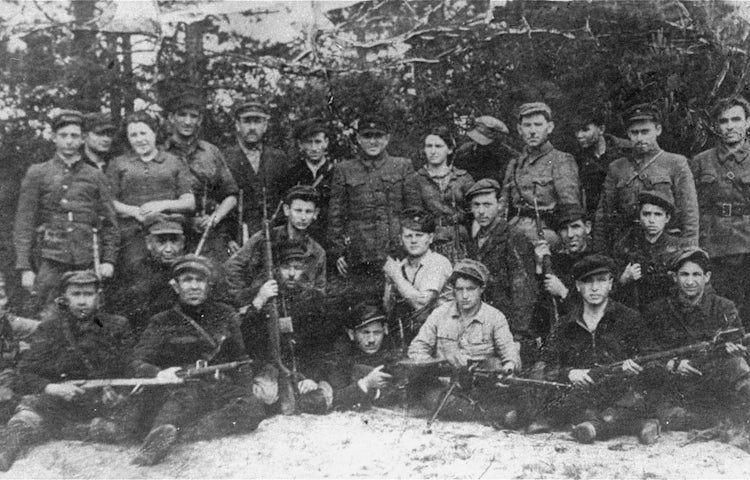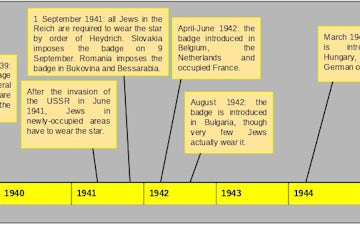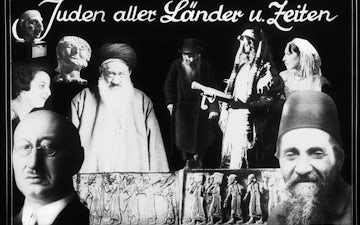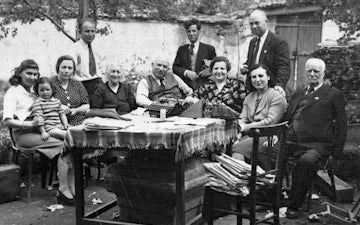
Tuvia, Asael and Zus Bielski were from a farming family near Nowogrodek in prewar Poland (present day Navahrudak in Belarus). Following the German invasion of the USSR in June 1941, the Bielski family was deported to the Nowogrodek ghetto. After their parents were killed by the Germans, they escaped the Nowogrodek Ghetto in December 1941 and formed a partisan group numbering about 30. By assisting Jews from ghettos in nearby cities to escape, the group expanded to about 700 over the subsequent eighteen months. Tuvia, the eldest of the brothers, was chosen to command the group.
In August 1943, the group was forced to make camp deep in the Naliboki Forest, northeast of Nowogrodek. Tuvia was determined to accept any Jews who asked to join the group. By the end of the war, the Bielski Family Camp had diverse industries and institutions including a school, bakery, infirmary and laundry. Tuvia emphasised that “It is more important to save Jews than to kill Germans.”
Throughout their time in the forest, the Bielski group had to contend with other partisan groups, some of whose members were extremely antisemitic. Tuvia Bielski came to an uneasy arrangement with the commander of the Soviet partisans, and the Bielski partisans participated in joint operations against German guards and Belorussian collaborators. Asael was killed in January 1945 after being conscripted into the Red Army. In the summer of 1944, Belarus was liberated and the Bielski group, now numbering around 1200 people, emerged from the forests and went their separate ways. Tuvia and Zus emigrated to Mandate Palestine and took part in the Israeli War of Independence in 1948. The group was the subject of a 2008 film, Defiance, based on the work of historian Nechama Tec, starring Daniel Craig as Tuvia. Some estimates place the number of descendants of the Bielski group as high as 10,000.




